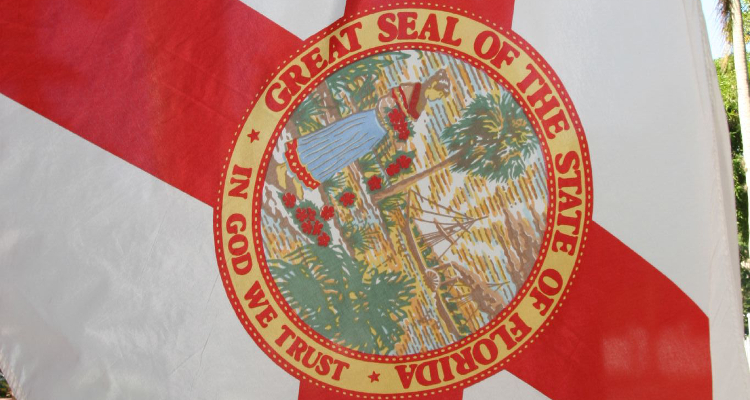After being introduced less than two weeks ago, proposed legislation that would expand gambling in Florida and renegotiate the southern state’s stalled compact with the casino-operating Seminole Tribe Of Florida has reportedly been passed unchanged by an influential Florida State Senate committee.
According to a report from the Miami Herald newspaper, the proposed measure, which is known as Senate Bill 8, was sponsored by Florida State Senator Bill Galvano and comes as the state is continuing its long-running legal battle with the Seminole Tribe Of Florida over the group’s right to exclusively offer “banked” card games such as blackjack.
If ratified by both chambers of the state’s legislature and signed into law by Republican governor Rick Scott, Senate Bill 8 would reportedly license a pair of new slots-only casinos for Miami-Dade County and Broward County while permitting existing gambling facilities in the two counties to offer up to 25 blackjack tables.
In addition, the Miami Herald reported that Galvano’s measure would allow slots to be licensed at facilities in Brevard County, Duval County, Gadsden County, Hamilton County, Lee County, Palm Beach County, St Lucie County and Washington County from January of 2018 while reducing the state-wide tax rate on the machines by 10% to 25%.
The newspaper moreover revealed that Senate Bill 8 would allow all parimutuel card rooms in the state to run “player-banked” games such as poker while boosting support for the horseracing industry by setting aside up to $20 million a year to supplement live race purse pools.
The Miami Herald reported that Galvano’s measure would also see the Seminole Tribe Of Florida officially lose its state-wide “banked” card games monopoly along with its exclusive right to offer slots outside of Miami-Dade County and Broward County. However, the tribe would retain slot exclusivity for the area around the city of Tampa and be given the right to offer roulette, blackjack and craps in every one of its Florida casinos in exchange for agreeing to pay $325 million a year.
“Sure it’s about gaming but it’s also about creating stability for a dubious marketplace,” Galvano told the newspaper after Senate Bill 8 passed through the Florida Senate Regulated Industries Committee on Wednesday. “It’s about establishing predictability for our state budget. It’s about protecting programs that exist in our state and creating funding opportunities.”
The Seminole Tribe Of Florida, which operates seven casinos in the southern state including the Seminole Hard Rock Hotel And Casino Hollywood and the Seminole Hard Rock Hotel And Casino Tampa, has continued to make monthly revenue-sharing payments as part of its 2010 compact despite the contended expiration five years later of the “banked” card games portion of the deal. But, the Miami Herald reported that Florida has yet to spend any of the post-2015 cash as it awaits the outcome of ongoing negotiations with the tribe or a favorable court ruling.
Galvano told the newspaper that Senate Bill 8 would immediately allow the state to access around $200 million of this money from the Seminole Tribe Of Florida currently sitting in escrow along with the tribe’s expected first-year payment of $325 million while he expected annual duty revenues after that to hit approximately $450 million.
“It’s a significant dollar amount and a comprehensive approach to move us forward on this journey,” the Republican told the newspaper.
The Miami Herald reported that Galvano’s legislation would also legalize the running of daily fantasy sports contests under the regulation of a new Office Of Amusements within the Florida Department Of Business And Professional Regulation with operators required to pay a license fee of up to $500,000. Another provision would reduce taxes on parimutuel venues, particularly those offering greyhound races, while instituting more stringent injury reporting protocols.
If passed, Senate Bill 8 would moreover reportedly see Florida revoke dormant parimutuel permits and earmark $20 million to buy back active racing licenses while dog and horseracing tracks as well as jai alai venues would be able to easily decouple from current live racing and games provisions.
Jose Felix Diaz, a member of the lower Florida House Of Representatives and Chairman for the Florida House Of Representatives Commerce Committee, hailed the quick success of Senate Bill 8 and told the newspaper that this speed had been a testament to Galvano’s “willingness to continue a conversation with multiple interested parties including the governor, the Seminole Tribe Of Florida and the Florida House [Of Representatives]”.
“The [Florida State] Senate’s passage of a gaming bill this early in the year is a gigantic first step,” the Miami-Dade County Republican told the Miami Herald.



